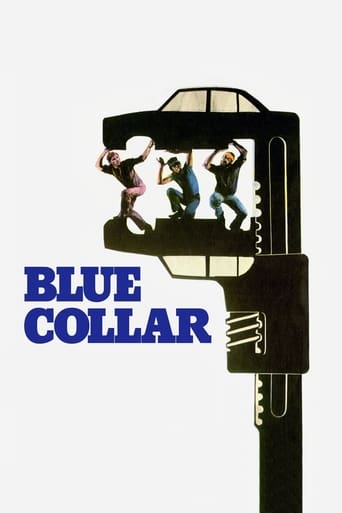"Blue Collar" is the American Dream. If you're rich, you can buy it. If you're anything else, you gotta fight for it.
"Blue Collar," released in 1978 and produced by TAT Communications Company and Universal Pictures, is a gritty and compelling drama that delves into the lives of three auto workers in Detroit. Directed by Paul Schrader, the film stars Richard Pryor, Harvey Keitel, and Yaphet Kotto as Zeke, Jerry, and Smokey, respectively. These three friends, struggling with the daily grind and financial pressures, decide to rob their union hall, hoping to find a solution to their problems. However, their plan unravels as they uncover deeper corruption within the union, leading to a series of events that test their friendship and moral boundaries. The film's setting in the heart of Detroit's auto industry provides a stark backdrop that reflects the economic and social struggles of the era. Schrader's direction captures the raw essence of blue-collar life, with its mix of camaraderie and desperation. The performances by Pryor, Keitel, and Kotto are nothing short of remarkable, each bringing a unique depth to their characters. Pryor, in particular, delivers a standout performance, showcasing his dramatic range beyond his well-known comedic talents. "Blue Collar" is not just a film about a heist; it's a poignant commentary on the exploitation and disillusionment faced by the working class. The narrative skillfully weaves together themes of loyalty, betrayal, and the quest for a better life, making it resonate with audiences even today. The film's exploration of union corruption and the personal toll it takes on individuals adds a layer of complexity that elevates it beyond a typical crime drama. In its time, "Blue Collar" was a bold and unflinching look at the American working class, and its relevance has only grown over the years. The film's honest portrayal of the struggles faced by Zeke, Jerry, and Smokey serves as a powerful reminder of the human cost of economic disparity. With its strong performances, compelling storyline, and social commentary, "Blue Collar" remains a significant piece of cinema that continues to provoke thought and discussion.
Año1978
Presupuesto1700000$
Duración114 minuto
Ingresos6521083$
GénerosDramaCrimen
Países de producciónUnited States of America

